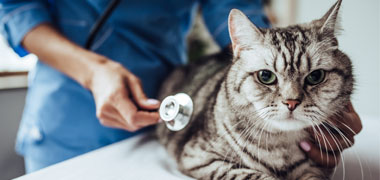
This role has a moderate level of AI exposure. AI can enhance efficiency for some tasks, but this job still relies on human skills and decision-making.
Explore all careersA pet groomer enhances the appearance of pets through bathing, grooming, and health checks while needing patience, flexibility, and good people skills.
Get qualified to work as a Pet Groomer with a course recognised across Australia. Speak to a training provider to learn more.



In Australia, a full time pet groomer generally earns $1,200 per week ($62,400 annual salary) before tax. This is a median figure for full-time employees and should be considered a guide only. As you gain more experience you can expect a potentially higher salary than people who are new to the industry.
 Courses.com.au Team
Courses.com.au Team
The number of people working as a pet groomer has increased steadily and there are now 4,100 people in this role (this has increased from 3,100 five years ago). Many people choose to be a pet groomer in a part-time role. Pet groomers may find work across all regions of Australia.
Source: Australian Government Labour Market Insights
 Courses.com.au Team
Courses.com.au Team
To become a pet groomer, consider the Certificate III in Pet Grooming. This is an 18 month course covering everything you need to know to groom domestic cats and dogs. You’ll learn grooming techniques and become familiar with the equipment needed for pet grooming including hydro-bath. You’ll also cover other relevant topics including hygiene and infection control.
 Courses.com.au Team
Courses.com.au Team
Browse occupations related to Pet Groomer



The region of Nelson Bay, nestled in the stunning Port Stephens area of New South Wales, is an ideal location for those seeking to embark on a rewarding career as a Pet Groomer. With a growing demand for professional pet grooming services, enrolling in Pet Groomer courses in Nelson Bay offers aspiring groomers the skills and qualifications necessary to thrive in this vibrant field. Two notable beginner courses available in the area include the Certificate III in Animal Care Services (Pet Grooming) ACM30122 and the Advanced Grooming Skill Set ACMSS00032. Both courses provide exceptional foundational training for those with little to no prior experience in animal care or grooming.
Upon completing these Pet Groomer courses in Nelson Bay, graduates can explore various rewarding job roles related to animal care. For instance, positions such as Animal Attendant, Kennel Hand, and Cattery Attendant present additional career pathways that enhance one’s experience in the pet industry. The knowledge gained during formal training not only prepares you for grooming tasks but also aids in the general well-being and care of animals, making you a valuable asset in various animal care settings.
Completing a Pet Groomer course in Nelson Bay opens doors not just to grooming roles, but also to specialised positions in animal welfare and veterinary fields. Interested individuals can further explore related areas of study like Animal Welfare and Veterinary courses and Animal Care courses, enhancing their skill set and employment opportunities. The connection between grooming and overarching animal care emphasises the significance of formal education in ensuring the safety and wellness of pets.
In addition to grooming, prospective students can consider broader job roles in the animal sector, such as a Kennel Attendant, Zoo Keeper, or even a Wildlife Biologist. With such a diverse array of career options, individuals who complete Pet Groomer courses in Nelson Bay can confidently pursue their passion for animal care while contributing positively to the community. Enrolling in these courses not only empowers students with essential skills but also enables them to become advocates for animal health and welfare in their localities.